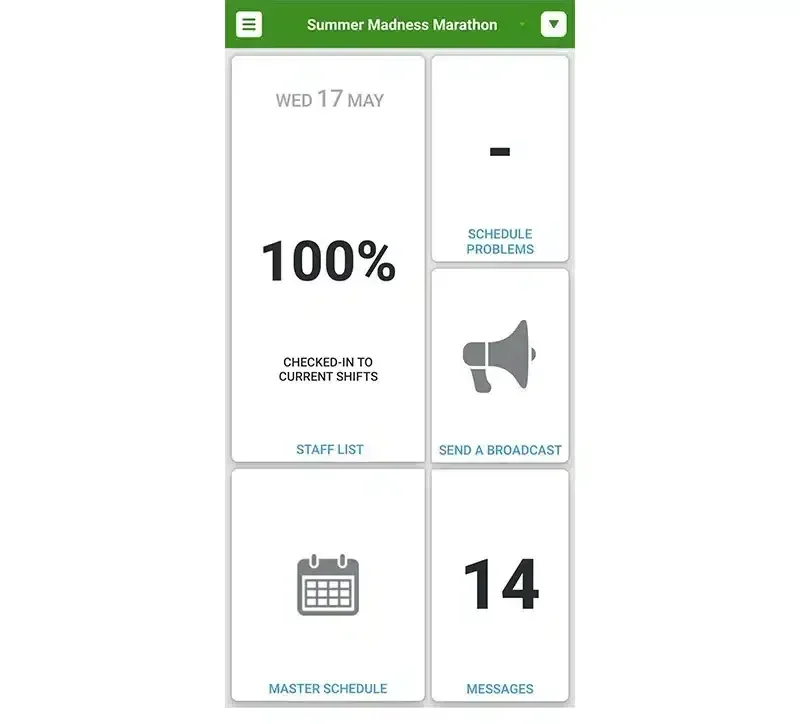 everything you need to know about festival planning for nonprofits." width="1220" height="475" />
everything you need to know about festival planning for nonprofits." width="1220" height="475" /> everything you need to know about festival planning for nonprofits." width="1220" height="475" />
everything you need to know about festival planning for nonprofits." width="1220" height="475" />
The festival industry is booming worldwide. For instance, revenue for the music events market has an expected annual growth rate of 4.17%, leading to a projected market volume of $31.7 billion by 2027.
As a nonprofit event planner, you may be interested in hosting a festival to support your organization’s fundraising efforts and raise awareness for your mission. Whether your event is focused on music, food, comedy, the changing of the seasons or a different theme, you’ll need a clear festival planning checklist to set your event up for success.
This step-by-step festival planning guide should act as a jumping-off point as you begin planning your next festival.
We’ll cover these steps:
By following these guidelines, you can plan a safe, fun, well-organized event that brings your community together and raises support for your nonprofit.
The first step of the festival planning process is setting clear goals.
Your goals will serve as a compass, providing direction for your planning process.
Here is a list of example objectives to help guide you in your goal-setting process:
Once you select your overarching aims, nail down specific goals with measurable KPIs. This helps measure progress made toward your objectives. Take the following for example:
Make sure your festival planning team is aligned with your goals so they have a clear idea of how they can support your event’s mission.
Now that you have a clear understanding of your festival goals, allocate a festival budget to bring those goals to fruition.
Festivals have many moving parts that need to be considered and budgeted for in your festival planning. Here is a list of common line items that you should consider as you plan your budget:
Ensure your budget doesn’t exceed your expected revenue earnings from the event to maintain a positive ROI.
The right festival venue can have a major impact on how attendees, performers and vendors perceive the experience. Your venue should be accessible to your target demographic, fit the experience you’re trying to deliver and be large enough to accommodate your audience size.
Ask the following questions when deciding on your venue:
Once you have found the perfect venue, you need to set a date, sign a contract, stay within your budget, and make payments. Don’t forget to also secure the necessary licenses and permits to hold the festival (think zoning and parking).
Your lineup and vendors are the elements that will attract potential attendees to your event.
Before you even begin making calls, determine your key attendee demographics and what motivates them to attend your event. This will help guide the catering services, entertainment acts and vendors you book.
Use this checklist to kick-start your lineup booking:
When reaching out to performers and vendors, highlight the perks they can receive from participating. These benefits include access to a new audience of potential fans or the opportunity to support a good cause.
All of your event marketing messages should have a unique sales proposition. Ensure your hook stands out from the competition and inspires people to take action right away to drive event registrations.
For example, you might highlight your festival’s wide array of delicious food options or entertainment lineup that includes multiple up-and-coming artists.
Once you’ve finalized your messaging, consider using the following channels to advertise your festival:
Begin marketing your festival several months in advance to put it on supporters’ radars and build excitement. Ramp up the intensity of your event marketing in the last few days before ticket sales close to ensure everyone who wants to attend has the opportunity to do so.
Your nonprofit’s volunteers and staff will be critical to the success of your festival. Volunteers and staff members help keep your event running smoothly and ensure the safety of your attendees.
Here are some core components of a successful volunteer management strategy:
To effectively and efficiently create and execute a successful event volunteer management strategy in your festival planning, consider investing in an all-in-one volunteer management solution.
For example, Bloomerang’s volunteer management system offers a centralized place to manage volunteer schedules, create customized recruitment flows and personalize volunteer outreach. Volunteers can also access convenient self-sign-up tools and a mobile app that empowers them to communicate with your staff when necessary.
After determining your lineup, venue and vendors, you’ll be ready to finalize your event schedule. Event safety is a core component when considering your event schedule and logistics, so consider how people will move from activity to performance safely.
Post a map of your venue on your event’s online landing page. The map should mark all parking areas, restroom facilities, eating areas and emergency exits. Have an emergency plan clearly mapped out as well that includes evacuation routes, emergency procedures and safety instructions.
Promote your event’s schedule on social media, your website and your email newsletter in the weeks leading up to your festival.
There is nothing more rewarding than watching your festival planning pay off. However, there are always last-minute things that arise leading up to the event and on the day itself. You should try and plan for these unexpected issues as well.
Here are a few last-minute tasks to anticipate:
Even the most well-planned festivals face unforeseen obstacles on event day. Remain flexible for whatever circumstances come your way.
After your festival concludes, show appreciation to everyone involved, including your volunteers, attendees, donors, performers and vendors. This sets the foundation for long-lasting relationships and boosts your participant retention rate the next time you host a festival.
Consider the following ideas to thank different supporter groups:
Also, let all participants know your event’s fundraising results and whether you reached your goal. Describe how you’ll use proceeds to further your mission, whether through purchasing new equipment or using the funds to grow certain projects and programs. Make it clear that you couldn’t have achieved such success without the support of everyone who participated in your festival.
Streamline your volunteer and staff management and increase your capacity to scale up your event operations with the help of Bloomerang. Our robust volunteer management software allows you to reduce your administrative time and increase your ability to manage a growing team of event staff.
Bloomerang’s solution allows nonprofit event planners to:

Schedule a Bloomerang demo for an inside look at what our solution can do for your festival volunteer management needs.
With a clear vision, dedicated staff and volunteers and a concrete plan, you can make your nonprofit’s festival the event of the season. A well-planned, engaging festival can boost your fundraising efforts and provide significant support to your mission.
Looking for more volunteer management and event planning advice? Check out these additional resources: